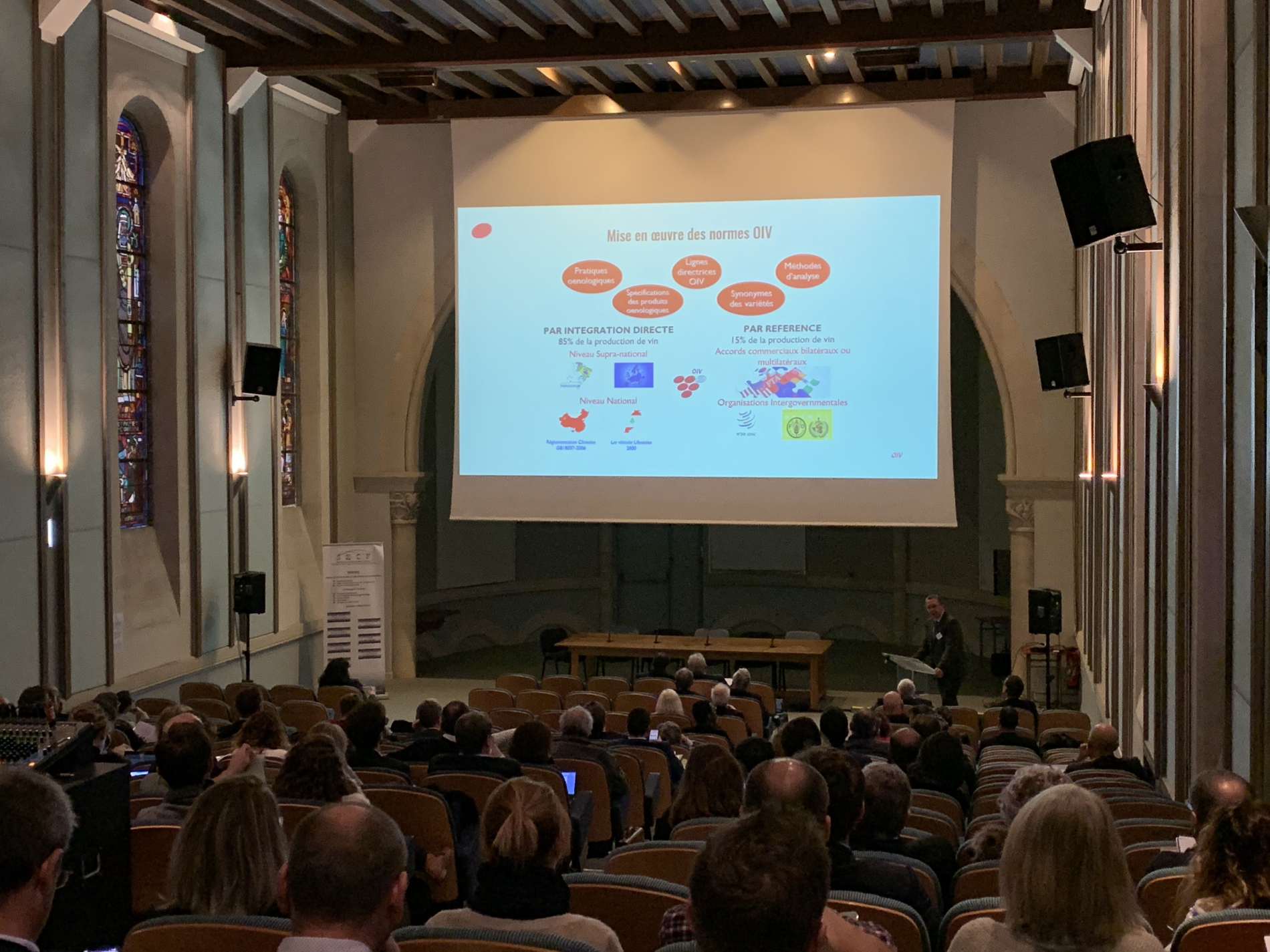On 15 November 2019, over 200 participants attended the 7th Wine Track® event, held in Reims (France).
Under the high patronage of the OIV, this symposium co-organised by the Society of Chemical Experts of France (SECF) and the Champagne-Ardennes section of the Union of Oenologists of France was a unique opportunity for scientists to discuss the tools and techniques that help ensure the traceability and guarantee the authenticity of vinicultural products, especially in relation to counterfeiting and fraud.
OIV Scientific Coordinator Jean-Claude Ruf took the opportunity to highlight the OIV’s long-standing commitment in these areas, particularly through the creation of international standards relating to:
- the definition of products,
- oenological practices, in particular as regards consumer safety and maintaining the authentic character and organoleptic qualities of wines,
- labelling rules,
- the implementation of traceability standards, and
- the implementation of analytical standards to monitor this traceability and origin.
Traceability and authentication systems require a high level of trust among operators, especially in blockchain systems, as well as a certain level of interoperability between systems.
As regards authenticity, while methods to measure light isotopes are still widely used, the analysis of non-traditional isotopes, of trace elements, can be used to show that each wine has its own natural isotopic signature. Similarly, other isotopes such as those of nitrogen can serve as a geographic marker.
Finally, non-aggressive methods of laser ablation can detect counterfeiting by analysing the container, which also has a specific chemical signature.
It would therefore seem that the different methods, such as the analysis of stable isotopes or of certain light isotopes, as well as the determination of trace elements or proton analysis, constitute complementary tools that open up new horizons and perspectives in the field of traceability and authentication.

Jean-Claude Ruf OIV. Wine Track® 2019
© Photo : R. Lartigue - Toppan Europe